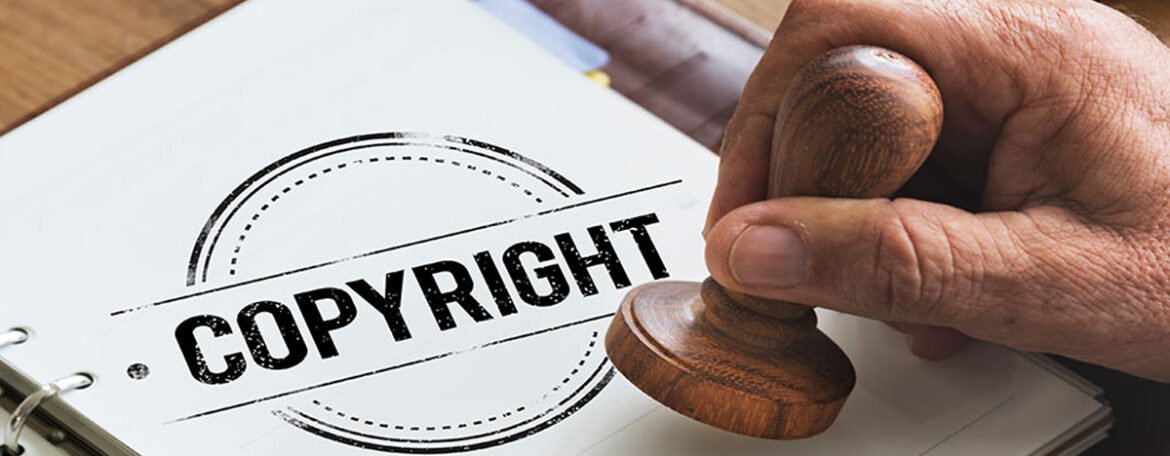What Is Copyright?
Copyright is a legal right granted to the owner of intellectual property. It pertains to the exclusive right to duplicate or reproduce a creative work. Essentially, copyright means that when a person creates a piece of intellectual property, they acquire ownership rights. This ensures that only the creator or those they authorize can reproduce or utilize that work. Copyright law provides original creators with exclusive rights for a designated period, after which the work may enter the public domain.
What Can You Copyright? Understanding the Categories
Copyright protects a wide range of creative works. The Registrar of Copyrights maintains a register divided into six categories, each tailored to specific types of intellectual property:
Literary Works (Excluding Computer Programs): This includes novels, poetry, essays, articles, and more.
Musical Works: This covers musical compositions, including melodies, lyrics, and sheet music.
Artistic Works: Visual creations such as paintings, sculptures, drawings, and other artistic expressions.
Cinematography Films: This ensures the protection of audiovisual works.
Sound Recordings: This category includes audio recordings of music, speeches, and various other sound-based creations.
Computer Programs, Tables, and Compilations: Software, data compilations, and tables are safeguarded by copyright.
Copyright Law
These copyrights are governed by “THE COPYRIGHT ACT, 1957,” which has been amended multiple times to adapt to the evolving landscape of intellectual property rights.
The Significance of the Copyright Registration Process
Copyright registration solidifies your legal ownership of a work. By registering your copyright, you gain control over the dissemination, reproduction, and any translations or adaptations of your creative content.
Why Consider Registering Your Work Under Copyright Law?
While registering your work under copyright law isn’t obligatory, it is highly recommended for several reasons. Copyright protection provides the creator with specific fundamental rights over their work and ensures their creative efforts cannot be replicated for a designated period. This legal protection fosters motivation and encourages creators to continue their artistic endeavors.
Benefits of Copyright Registration
Copyright registration offers several advantages, including:
Safeguarding Ownership: Provides exclusive rights over reproduction, distribution, adaptation, dissemination, and translation.
Legal Protection: Ensures the work cannot be reproduced without authorization.
Enhancing Brand Value: Serves as proof of ownership, aiding in marketing and goodwill creation.
Global Reach: Extends protection internationally.
Copyright as an Asset: Considered an intellectual property asset that can be sold or licensed, adding economic value.
Owner Visibility: Raises the profile of the work, making it accessible and preventing unauthorized use.
Economic Stability: Promotes economic stability by enabling creators to monetize their art.
Copyright Symbol
After registration, you can use the copyright symbol (©) to indicate your work is protected, deterring unauthorized use or reproduction.
Legal Rights of a Copyright Owner
As a copyright owner, you have several legal rights, including:
Claiming Authorship: Asserting paternity over the creation.
Reproduction and Storage: Reproducing the work in any form and storing it electronically.
Control Over Publication: Deciding where to publish the work.
Public Performance and Communication: Publicly performing or communicating the work.
Protecting Reputation: Taking action to prevent harm to your image.
Selling or Transferring: Selling or transferring the copyright.
Duration of Copyright Protection
Copyright protection typically lasts for the author’s lifetime plus an additional 60 years after their death.
Conditions for Filing a Copyright Application
Artistic Works: Upload in PDF/JPG format.
Sound Recording Works: Upload in MP3 format.
Literary/Dramatic, Music, and Software Works: Upload in PDF format, ensuring the file size is less than 10 MB.
Software: Upload a PDF containing at least the first ten and last ten pages of the source code.
Obtaining Copyright Registration: Step-by-Step Process
1. Access the Official Website: Visit the Copyright Office website and log in.
2. Submission of Application: Prepare an application with necessary particulars in the prescribed format (FORM XIV).
3. Make Payment: Submit the application and requisite fees.
4. Dairy Number Issuance: Receive a Dairy Number from the registrar.
5. Objection Handling: A 30-day waiting period for potential objections.
6. Application Scrutiny: If no objections, the registration will proceed.
7. Objection Resolution: A hearing will address any objections.
8. Copyright Registration Certificate: Once approved, the certificate will be issued.
Copyright Registration Certificate
The entire process typically takes approximately 3 to 6 months. Once approved, you will receive the copyright registration certificate.
For more detailed information, Contact us at +91-7338649167

